|
Alternative Fuels and Combustion Technology Laboratory
Supervisor: Hasan Bedir, Location: New Hall
The function of this laboratory is to have an environment to test performance and combustion characteristics of internal combustion engines. An active dynamometer which is able to test internal combustion engines of up to 100 kW capacity is available at the laboratory. The dynamometer’s maximum brake torque is 260 Nm at 4000 rpm. The laboratory also contains auxiliary equipment necessary for an internal engine to operate including a fuel delivery and consumption unit, a cooling circuit, an exhaust system, air ventilation unit and fire extinguishing equipment. The diagnostic devices used in the laboratory include torque and speed measurement devices as well as an indicator system capable of measuring in cylinder and intake/exhaust line pressure at 0.5 crank angle degree intervals. The laboratory is frequently used for graduation projects for the automotive engineering MS degree students and also for demonstration experiments of undergraduate courses. A diesel and a gasoline engine are available for testing in the laboratory.
|
|
|
Automotive Acoustics and Vibration Laboratory
Supervisor: Günay Anlaş, Location: New Hall
Vibration and acoustics and various related topics such as fatigue and passenger comfort are among the most important subjects in Automotive Engineering. The laboratory is founded to examine and solve all kinds of vibration and acoustics problems encountered in automobiles. The necessary equipment to conduct the experimental studies have been obtained and carried out in various ongoing projects in the framework of university-industry cooperation. Currently, in the laboratory besides the experimental equipment such as a variety of accelerometers, microphones, tachometers, data acquisition systems, there are a sedan and a body-in-white which investigations are carried out on . In conjunction with these equipment, components used for educational purposes such as many and varied features engines, gear boxes, steering systems, such as parts are also available. Various software and hardware related to dynamics and control of vehicles are used in the same laboratory. The development studies of alternative fuel vehicles participated in various competitions on behalf of our university are also carried out largely in this laboratory.
|
 |
|
Battery Materials Laboratory
Supervisor: Gülin Vardar, Location: KB224
Battery Materials Laboratory focuses on the interfaces in solid-state battery structures. Research on solidification methods for solid state battery materials is being conducted. The interface between solidified cathode and electrolyte is being probed chemically and electrically. The laboratory is equipped with an argon glovebox for the inert environment needed to handle battery materials.
|
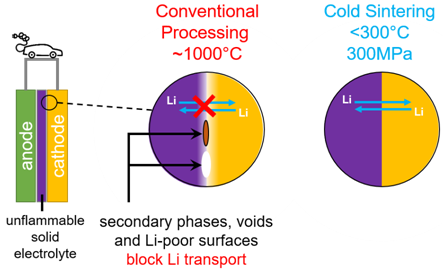 |
|
BURET (Bogazici University Renewable Energy Laboratory) Supervisor: Günay Anlaş, Hasan Bedir BURET focuses on renewable energy technologies using low temperature heat sources such as sun, waste heat or geothermal energy to develop more efficient thermal energy conversion systems. An organic rankine cycle test system is designed and produced to observe behaviours of various organic fluids and optimize the cycle for higher power output. In addition, design and test studies of novel expanders are investigated to improve the both efficiency of the cycle and turbine. Further, using a low speed wind tunnel and Particle Image Velocimetry (PIV) systems, flow analysis of natural and forced convection for enchanced cooling methods are studied. |
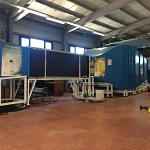 |
|
Supervisor: Nuri Ersoy, Location: KB Basement
In Composites Laboratory, research on fibre reinforced composites, reinforced plastics and nanocomposites as well as their production methods is being conducted. Composite parts can be produced using several manufacturing methods such as vacuum infusion, autoclave, hot press, induction or microwave heating. Production of novel composites and nanocomposites as well as novel, energy efficient production methods, prediction of manufacturing deformations in composite parts, micromechanical analysis of composite parts, prediction of damage by using various failure criteria, deformation and failure analysis of composite structures, design and optimization of wind turbine blades are among the research topics of interest.
|
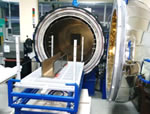 |
|
Computational Thermal and Energy Systems Laboratory (c-TESLab)
Supervisor: Hakan Ertürk, Location: KB223
TESLab is located in KB-215 (in North Campus) and its goal is to develop methods and tools for design, measurement and control of thermal and energy systems. Our research focuses on several applications Design and production of improved materials for renewable energy and improved thermal transport relying on nano-technology Multi-scale modeling and characterization of nano-scale thermal transport. Design and control thermal systems Thermal management and testing of opto-electronic packages We are not only focused on contributing to the scientific literature in these areas, but also provide solutions to practical problems using numerical and experimental techniques. Due to the multi-scale nature of these problems, we focus both on microscopic and macroscopic modeling and characterization methods. Moreover, we use novel design and characterization approaches for some of these applications such as inverse design or regularization based tomography techniques.
|
|
|
Design Laboratory
Supervisor: Çetin Yılmaz and Hasan Bedir, Location: KB219
This lab is used for design and production of senior projects. A variety of machine elements (gears, nuts and bolts, etc.), electromechanical components (electric motors, electromechanical valves, etc.) and electrical and mechanical measuring equipments are available in the laboratory. Several benches are available for the students’ use as this lab is mostly used for the assembly and test processes.
|
 |
|
Experimental Engineering Laboratory
Supervisor: Evren Samur, Location: KB245
Laboratory training associated with junior level fundamental mechanical engineering courses are combined into a sequence of two courses: Experimental Engineering I and Experimental Engineering II. Laboratory work is conducted in the Experimental Engineering Laboratory of the department. The laboratory is designed to teach hands-on experimental skills and is equipped with equipment for teaching the fundamentals of measurement and instrumentation with emphasis on sensors and transducers. Test setups related to the disciplines of solid mechanics, thermodynamics, heat transfer and fluid mechanics provide the opportunity of conducting experiments in those fields.
Utilization of the laboratory is, in the average, twenty-five hours per week. The laboratory is capable of accommodating seventy-two students per academic term.
The Experimental Engineering laboratory of the department has been approved in both of the ABET accreditation processes.
|
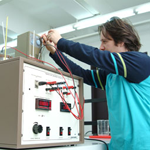 |
|
Experimental Thermal and Energy Systems Laboratory (e-TESLab)
Supervisor: Hakan Ertürk, Location: KB215
TESLab is located in KB-215 (in North Campus) and its goal is to develop methods and tools for design, measurement and control of thermal and energy systems. Our research focuses on several applications Design and production of improved materials for renewable energy and improved thermal transport relying on nano-technology Multi-scale modeling and characterization of nano-scale thermal transport. Design and control thermal systems Thermal management and testing of opto-electronic packages We are not only focused on contributing to the scientific literature in these areas, but also provide solutions to practical problems using numerical and experimental techniques. Due to the multi-scale nature of these problems, we focus both on microscopic and macroscopic modeling and characterization methods. Moreover, we use novel design and characterization approaches for some of these applications such as inverse design or regularization based tomography techniques.
|
|
|
Flow Modelling and Simulation Laboratory (FMS Laboratory)
Supervisor: Ali Ecder, Location: M4220
In FMS Laboratory, computational modeling techniques are being developed and applied to study engineering problems that cover a wide range of application areas such as Fluid Mechanics, Aerodynamics, Gas Dynamics, Transonic Flow, Non-Newtonian Fluids, Turbulence, Acoustics, Solidification, Combustion, Chemical Vapor Deposition, Two-Phase Flow, and other areas of Computational Science, such as Semi-Conductor Device Simulations.
|
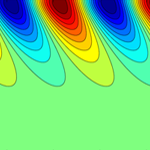 |
|
Supervisor: Evren Samur, Location: BTK A1K169
Our lab focuses on developing novel robotic and mechatronic systems such as soft robots, haptic interfaces, tactile displays, robotic prostheses/orthoses, medical robots, and robotic grippers. We mainly carry out interdisciplinary projects collaborating frequently with industrial and medical partners. We have expertise in electro-mechanical design, hardware development, mechatronics integration, system identification, and experimental evaluation. In the lab, we extensively use various CAD programs, real-time data acquisition systems, prototyping tools, sensors, and actuators. Our lab contributes to the scientific literature by developing smart mechatronic and robotic systems focusing on human-machine interaction in medical and industrial applications.
|
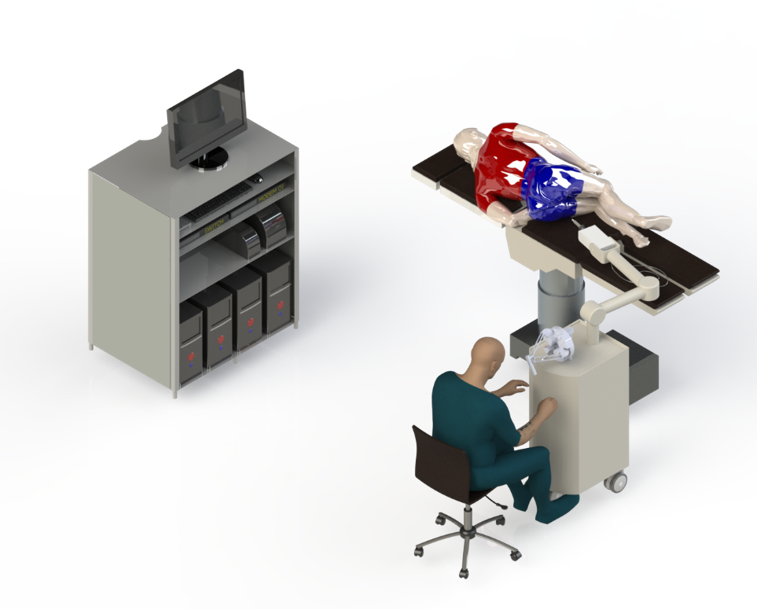 |
|
Materials Laboratory
Supervisor: Nuri Ersoy, Location: New Hall
|
|
|
Supervisor: Nuri Ersoy, Location: KB
Research topics are,
Near Net Shape Manufacturing
Formability of Sheet Metals
Microwave Sintering of Ceramics
Shape Memory Alloys
|
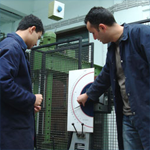 |
|
Mechanical Engineering PC Laboratory
Location: M4340 |
 |
|
Mechanical Tests Laboratory
Supervisor: Nuri Ersoy, Location: New Hall
In Mechanical Testing Laboratory, tests on mechanical behavior of polymers, composite materials, ceramics, metals and alloys are performed. Among the tests done in the laboratory are standard tension/compression/flexure tests, fracture mechanics tests and fatigue tests. In addition to these standard tests, special tests can be done on automotive components such as engine mounts, connecting rods, crank shafts according to the company specifications.
MTS and INSTRON servo hydraulic testing machines enable the dynamic tests to be performed, whereas ZWICK Universal Testing Machine enables measurement of elastic properties and static strengths of the materials
Deformation of parts under loading can be measured using strain gages and propagation of fatigue cracks under constant and variable amplitude loading can be monitored by optical and electronic methods. Damages parts can be examined using KRAUTKRAMER ultrasonic testing system.
|
 |
|
Mechanics of Advanced Materials Laboratory
This lab specializes on in situ full-field deformation measurement at multiple length-scales. Deformation fields can be mapped with intra-grain resolution over an arbitrarily large area through in house scanning equipment. This provides high resolution and high statistical significance (that normally do not coexist) at the same time. The focus of research is on materials with complicated or multi-physics-coupled constitutive behavior (e.g. coupled thermal-mechanical behavior) and deformation-induced transformation phenomena. Studied topics include deformation physics of hexagonal close packed metals that undergo twin transformation and superelasticity in shape memory alloys that is based on an austenite-to-martensite phase transformation. Multiscale measurement is complemented with multiscale modeling activity that includes polycrystalline averaging techniques and various applications of the finite element method.
|
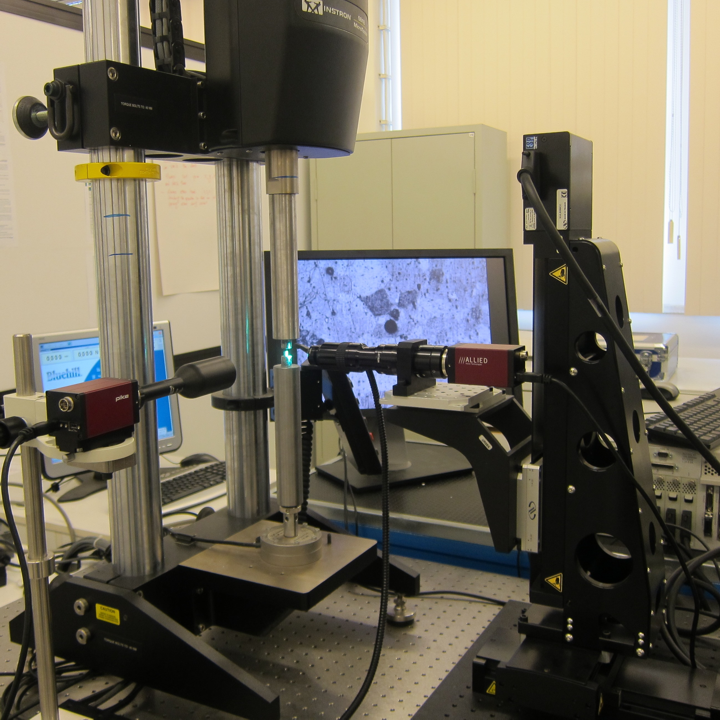 |
|
Metallography Laboratory
Supervisor: Nuri Ersoy, Location: KB225
|
|
|
Supervisor: Nazlı Dönmezer, Location: KB220
Micro and Nanoscale Thermal Characterization Laboratory (MiNThLab) specializes on understanding the heat transfer mechanisms in structures with micro and nanoscale features. We build realistic models to characterize thermal transport in materials and devices as well as their packages. Thermal management alternatives, also a focus of our group, are also investigated using these thermal models. Current research in our lab focuses on microscopic thermal transport in popular wide and ultra-wide bandgap semiconductor materials (GaN, AlGaN, -Ga2O3 etc.), two-dimensional materials (graphene, h-BN, etc.), and the thermal transport and management problems encountered in semiconductor devices such as high electron mobility transistors (HEMTs) and light emitting diodes (LEDs). web-page: https://minth.boun.edu.tr/
|
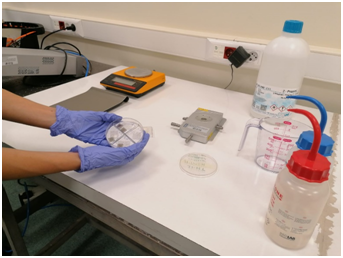 |
|
Smart and Autonomous Mobility Laboratory
Supervisor: Sinan Öncü, Location: KB217
Smart and Autonomous Mobility Laboratory’s research focuses on developing cooperative mobile robots which are able to communicate with other robots of similar or different architectures, in order to jointly perform a common task. Application areas include transportation, agriculture, automotive, and logistics sectors. Our main goal is developing novel cooperative sensing, localization, control, and planning algorithms for heterogeneous (aerial, ground, and water) multi-agent robotic systems that utilize different sensor and hardware modalities in order to augment their autonomous functions and therewith enabling safe, reliable, and cost efficient deployments of such systems.
|
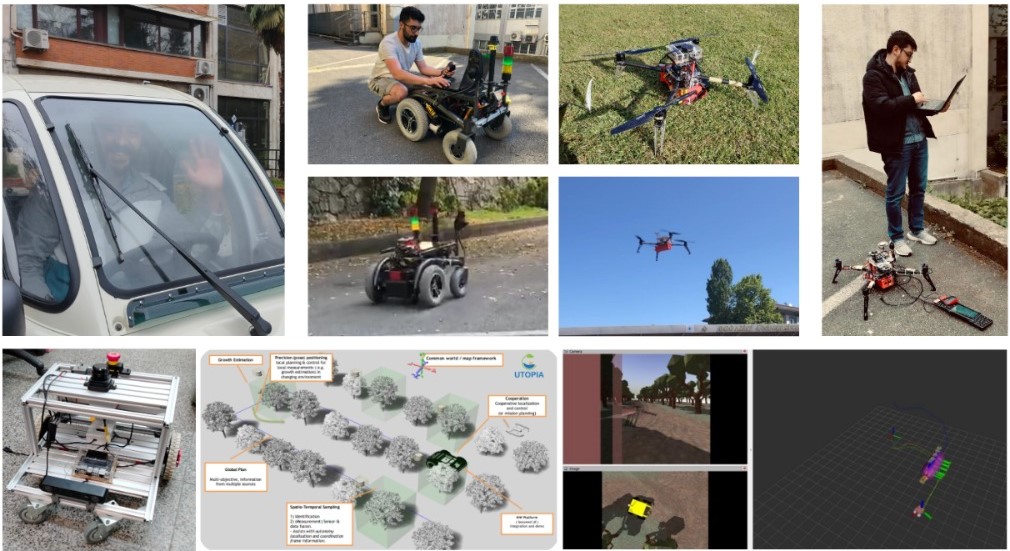 |
|
Space Technologies Laboratory
Supervisor: Murat Çelik, Location: KB Basement
Research projects in Space Technologies Laboratory focuses on the development, analysis and testing of plasma thrusters and components for space propulsion applications as well as the study of various terrestrial plasma applications and devices. Satellites and spacecraft moving in an orbit or in interplanetary space use propulsion systems that use the principle of conservation of momentum to provide thrust. Various propulsion concepts that will use external energy sources received from on-board batteries, solar panels, nuclear reactors, etc. are being developed and studied in this laboratory.
|
|
|
Vibrations Laboratory
Supervisor: Çetin Yılmaz, Location: KB222
Vibrations Laboratory is equipped with the instrumentation and software required for measurement and analysis of vibrations of structures and machinery. In the lab, there are two shakers for low frequency high force and high frequency low force applications, data acquisition systems, accelerometers, a laser vibrometer, an oscilloscope, and other miscellaneous electrical and mechanical measurement instruments. Current research in the lab focuses on computational and experimental investigation of vibration isolation systems, passive and adaptive vibration absorber systems, and phononic band gap structures.
|
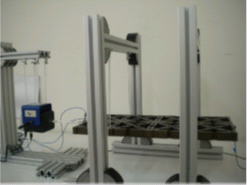 |
|
Wave Propagation Laboratory
Supervisor: Çetin Yılmaz, Location: KB218
In the Wave Propagation Laboratory, one, two and three-dimensional periodic structures and elastic metamaterials are investigated. Analysis and design studies are conducted through finite element software. |
 |

